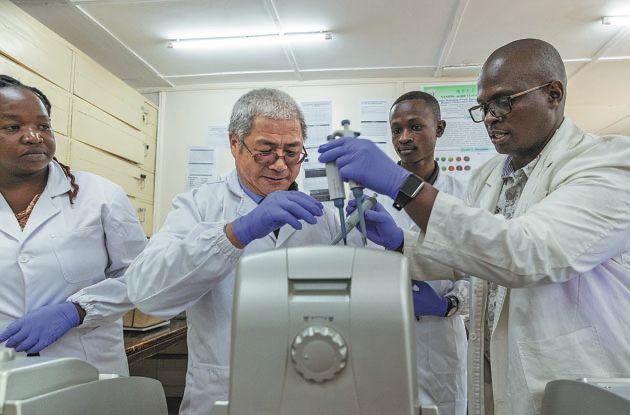
The joint Kenya-China agricultural laboratory has successfully developed over two dozen superior crop varieties in the past five years, significantly enhancing food security for Kenyan farmers.
The Kenya-China Joint Laboratory for Crop Molecular Biology, established at Egerton University in 2019, has utilized molecular breeding techniques to create 25 innovative crop varieties, with 18 already in commercial circulation.
Experts involved in the project revealed that these new crop varieties exhibit enhanced disease resistance and higher yields compared to traditional strains, offering promising prospects for agricultural productivity in the region. The seeds developed through this initiative are further processed at the Agro-Science Park at Egerton University for seed bulking and commercialization.
Notable among the improved varieties are five bean strains, including the popular “chelalang” bean, known for its high productivity and adaptability to various altitudes. Additionally, efforts to promote upland rice varieties requiring minimal water usage are underway in partnership with Kilimo Trust, aiming to boost rice self-sufficiency in Kenya.
Joseph Orende, a program assistant at Kilimo Trust, highlighted the significant progress achieved in rice production through sustainable farming practices, with yields increasing from two to 3.5 tonnes per hectare within two years. The collaboration between Egerton University and Kilimo Trust holds the potential to revolutionize food security across Africa through sustainable agricultural practices and innovative crop varieties.






